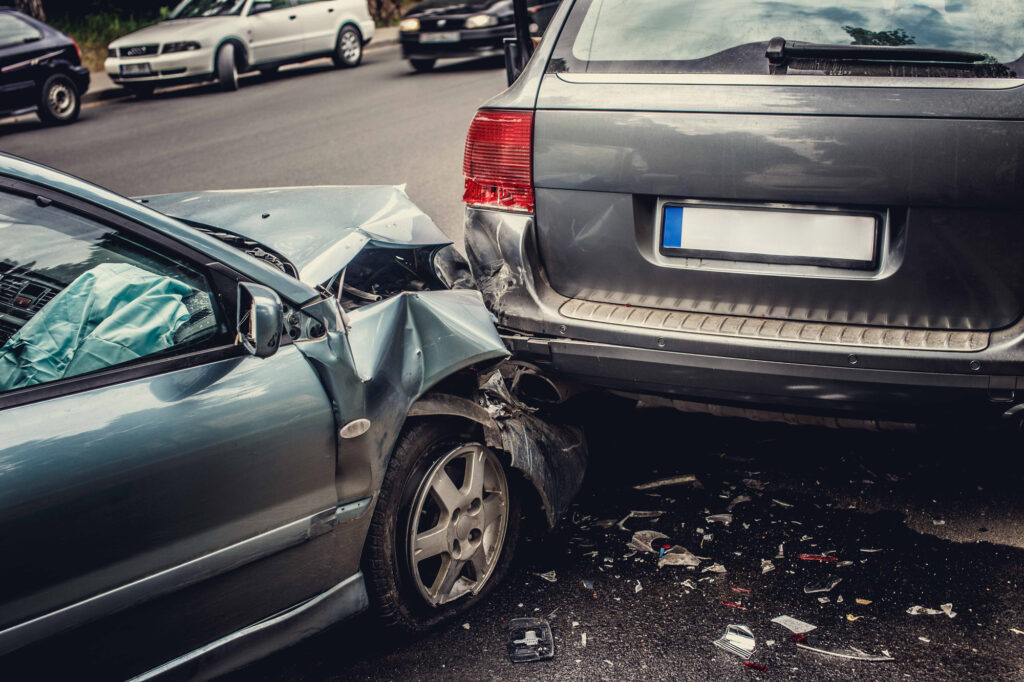Posted in Accident Data,Personal Injury on July 25, 2023
After getting into a car accident, it’s normal to feel disoriented and confused. The other driver might rush away, turning your accident into a hit-and-run. If you intend to file an auto accident claim, you want to exchange info after a car accident.
About six million car accidents occur across the US every year. However, not every accident is reported. What happens if you don’t exchange information after an accident?
Read on to find out!
What Happens If You Don’t Exchange Information After an Accident?
If you don’t get the driver’s information after a car accident, you might not receive the compensation you deserve. The other driver might not claim responsibility for the accident. They might not cover your damages, leading you to pay out of pocket.
In order to file a car insurance claim after an accident, you’ll need proof the accident occurred. You’ll also need the driver’s information.
You’ll struggle to file a claim without the appropriate information.
Report the Accident
What happens if you don’t report an accident within 24 hours? In some states, you’re legally obligated to file a police report. You could get charged with a hit-and-run if you don’t call the police right away.
Calling the police is just as important as gathering evidence and exchanging information with the other driver.
In some cases, the other driver will encourage you not to call the police. Don’t listen to them. Your insurance company might reject the claim if there’s no police report.
The other driver could leave before their name is officially documented in the report if you don’t call the police.
When speaking to the police, stick to the facts. Don’t embellish or try to assign blame.
Instead, let them know what you were doing right before the accident. Describe the other driver and their vehicle to the best of your ability.
Before the officer leaves the scene of the crash, ask for their name and badge number. Ask if they can send you a copy of their police report too. If their report isn’t finalized, they can send a copy to your personal injury lawyer later.
Call Your Insurance Agent
If someone rear-ends you, whose insurance do you call? You’re not obligated to call the other driver’s insurance company. Instead, talk to your own car insurance provider.
They’ll handle the claim on your behalf.
You should always call your insurance provider, even if you weren’t at fault for the accident. Your insurance provider will walk you through the process of filing a claim. They’ll help you understand what your coverage does or doesn’t cover.
Before calling your insurance provider, make sure to call the police. You’ll need an official police report to file your claim after a hit-and-run.
Your Options
If you leave the scene without exchanging information, you can file a claim through your Uninsured Motorist Coverage (UM coverage). This option is available even without the other driver’s insurance information. Talk to your car insurance adjuster to determine if you have this in your policy.
UM coverage will cover damages up to a certain amount.
Your other option is to file a lawsuit. Take the time to contact an experienced auto accident lawyer. Look for a lawyer with experience handling hit-and-run cases.
You can leverage their experience and expertise to review your legal options.
Your lawyer will walk you through the process of filing a claim in small claims court. Look for a lawyer who works on a contingency fee basis. They’ll only expect payment after winning your lawsuit.
Without help from an attorney, you might have to pay for a percentage of your losses out of your own pocket. An experienced lawyer can help you determine the best course of action. They’ll fight with your best interests in mind.
What Info Matters
Though it’s normal to feel disoriented after a car accident, it’s important to gather as much information as you can. The information you gather can prove that the other driver was at fault. You’ll need to start building evidence for your car insurance claim before leaving the scene.
The information that matters in a hit-and-run crash includes:
- Property damage
- Injuries
- How the accident happened
- Who was at fault
- Your total damages
- Your insurance information
- The other driver’s insurance information
- Picture/video evidence
- Witness testimony
The more evidence you can gather, the better. Write down everything you can remember about the other car if they flee the scene. For example, the make and model of the car, color, and license plate number.
About 4.8 million people are seriously injured in car accidents each year. Economic damage reaches $1,750,000 for fatal car accidents. Gathering evidence will help you fight for compensation.
The next time you’re in a car accident, write down the driver’s:
- Full name
- Physical address
- Phone number
- License plate number
- Driver’s license number
- Car make, model, year, and color
- Insurance policy number
Write down a description of the driver, too.
When speaking to the other driver, remain calm. Be polite, but don’t trust them to act with your best interests in mind.
Talk to a Lawyer About Your Options
To recap, what happens if you don’t exchange information after an accident? You could lose your chance to fight for compensation. The next time you’re in an accident, get their information and file an official police report.
Don’t forget to contact an experienced auto accident lawyer to review your legal options.
Were you recently in a hit-and-run accident? We can help.
Request a free case evaluation today to get started.



